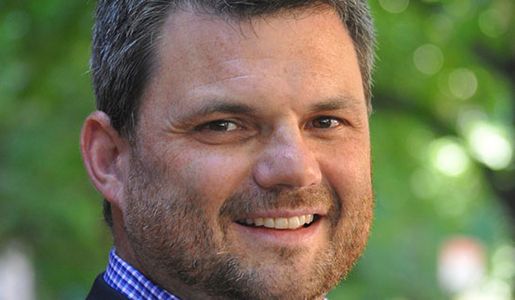Gallagher, GEGI Featured in Media
Kevin P. Gallagher, Professor of Global Development Policy at the Frederick S. Pardee School of Global Studies at Boston University, spoke with members of the media on new research on the economic links between China and Latin America released by the Global Economic Governance Initiative, of which he is Co-Director.
Gallagher wrote an Oct. 6 Op-Ed for Latin America Goes Global, a news organization that analyzes trends in Latin America politics and economics. His piece, entitled “The World Bank’s Second Chance in South America,” said that the slowdown in the China investment boom in Latin America gave the IMF more opportunities to invest in key areas such as infrastructure.
From the text of the Op-Ed:
According to a new report coordinated by Boston University’s Global Economic Governance Initiative (which I co-direct) China’s newly planned projects will be even more challenging. The Twin-Ocean Railway from the Pacific (Peru) to the Atlantic (Brazil) would rip through parts of the Andes mountains and the Amazon jungle—two of the most environmentally important places on earth, containing some of the highest concentrations of indigenous peoples as well.
As we report, the good news is that the Chinese banks and companies often rise to meet or exceed social and environmental standards when pressured by governments and/or civil society. Unfortunately, rather than keeping banks and companies in check, Latin American governments have turned up the surveillance on civil society to make sure it isn’t in the way of their newfound benefactors.
You can read the entire Op-Ed here.
More GEGI research in China and Latin America’s economic links were highlighted in an Oct. 6 article published in Dialogo Chino entitled “Is Feeding Soybeans to China’s Livestock Driving Amazon Deforestation?”
From the text of the article:
Much has been written about China’s insatiable appetite for Latin American soybeans and its effects on Amazonian deforestation. But the story is a complex one, with the causes of deforestation varying between soya-producing states and new research showing that soya-related logistics infrastructure plays a central role in driving deforestation and increasing illegal loggers’ ease of access into virgin forests.
A study released this week by Boston University’s Global Economic Governance Institute (GEGI) (sic) explains that while increasing Chinese demand for Brazilian soya is significant and positively correlated with deforestation, it is not always a direct driver to the extent that is commonly understood.
“Access roads are the leading cause of deforestation in the Amazon, even more so than the extractive projects and plantations that they serve,” says Becky Ray, a researcher at GEGI. However, many of these transport infrastructure works are financed by Chinese.
You can read the entire article here.
And GEGI research was featured in an Oct. 9 article in Project Syndicate entitled “The Hidden Debt Burden of Emerging Markets.”
From the text of the article:
Even where data exist, the figures must be interpreted with care. For example, data collected on a project-by-project basis by the Global Economic Governance Initiative and the Inter-American Dialog could provide some insight into Chinese lending to several Latin American economies. For example, it seems that, from 2009 to 2014, total Chinese lending to Venezuela amounted to 18% of the country’s annual GDP, and Ecuador received Chinese loans exceeding 10% of its GDP. Chinese lending to Brazil was closer to 1% of GDP, while lending to Mexico was comparatively trivial.
You can read the entire article here.
Gallagher is the co-chair of the Task Force on Regulating Capital Flows and has served as an advisor to the Department of State and the Environmental Protection Agency in the United States, as well as to the United Nations Conference on Trade and Development. Gallagher has been a visiting or adjunct professor at the School for Advanced International Studies at Johns Hopkins University, the Fletcher School of Law and Diplomacy; El Colegio de Mexico in Mexico; Tsinghua University in China, and the Center for State and Society in Argentina. Learn more about him here.
